

Lehi, Utah – August 29, 2025
Yesterday at Silicon Slopes in Lehi, Utah, the atmosphere buzzed with anticipation as CEOs from across the state’s tech and business community gathered for GTM Live. The Main Stage was set for the CEO Lunch and Roundtable, with Tiffany Vail, COO of Silicon Slopes, moderating and guiding the discussion. Panelists included Ryan Westwood, CEO of Fullcast, and Clint Betts, CEO of Silicon Slopes, along with industry veterans in the audience weighing in.

TechBuzz was on hand to capture insights, while attendees, most of them CEOs, filled the room with curiosity and readiness to share their own perspectives. The session kicked off with remarks from Guy Rubin and AJ Gandhi, followed by a candid interview with Ryan Westwood. Afterwards, a spirited roundtable discussion created a dynamic flow of ideas emphasizing growth, operational discipline, and leadership in turbulent times
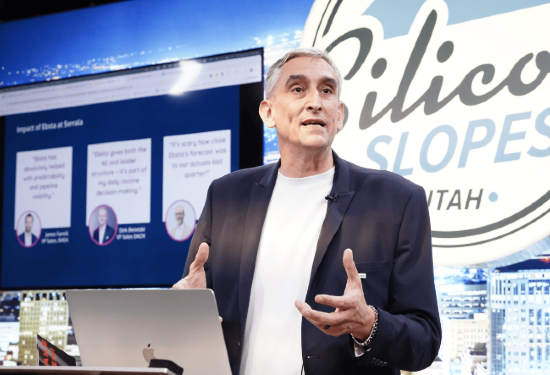
Westwood didn’t spend much time on product features or sales playbooks. Instead, he zeroed in on the deeper forces that shape a CEO’s longevity: trust, equity, and the discipline to play offense even in challenging markets.
Equity as a Leadership Unlock
For Westwood, a transformative moment in his career came when he stopped hoarding equity and started sharing it generously with his senior leaders.
“Too many CEOs complain they’re up all night, stressed, and alone,” Westwood said. “Well, of course they are — nobody else gets the economics they get. If you’re set to make $200 million while your team makes a tiny fraction of that, don’t be surprised if they don’t care like you do.”

Westwood pointed to his COO, Amy Osmond Cook, the key organizer behind GTM Live, who pulled off the packed, high-impact event without his direct involvement. “Amy has significant ownership in the company, which means she takes on massive responsibilities, such as this, and makes me look good in ways I don’t deserve.”
Attendees at the event received a copy of Amy Osmond Cook book that she co-authored with Ryan Westwood and Bala Balabaskaran, The RevOps Advantage: How to Maximize Your Revenue Teams' Potential, available to purchase on September 9.
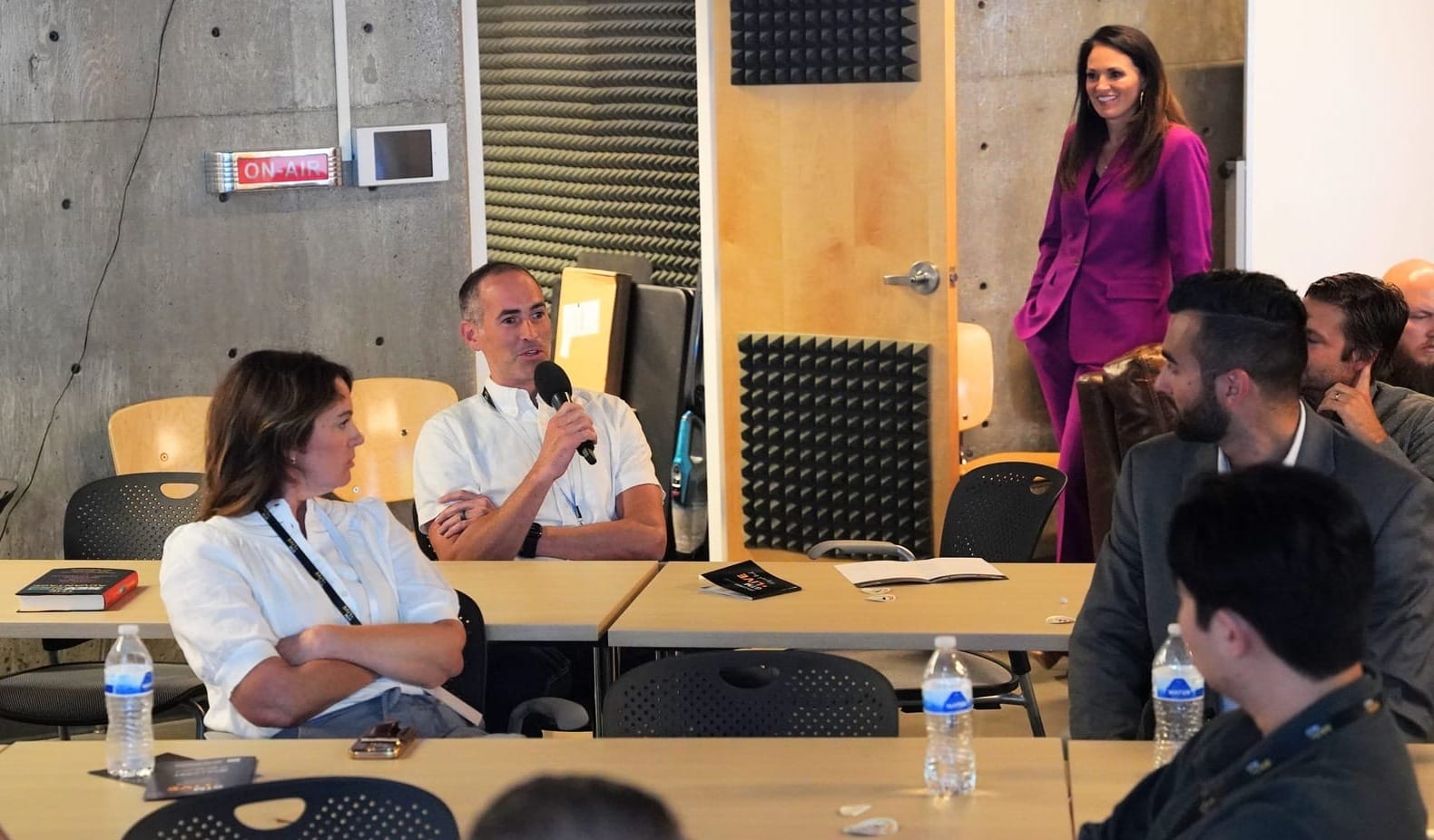
That equity strategy has already created life-changing outcomes: in Fullcast’s last exit, 28 employees became millionaires. For Westwood, those moments were “a million times better than any wire transfer to my own account.” The room responded with nods and applause, a tangible recognition of the impact of shared success.
Playing Offense in a Tight Market
Westwood argued that the true purpose of raising capital isn’t just hiring or R&D — it’s giving a company the ability to go on offense when others are playing defense.
“Because I trust my operators, I can spend 80% of my time chasing deals, acquisitions, and market opportunities, instead of babysitting the business,” he said.

Timing, he added, is critical. With interest rates still high, private equity and venture capital are sitting on the sidelines, creating a rare M&A buyer’s market. “We probably have about eight months before competition comes roaring back. Right now, the deals are incredible,” he said.
He encouraged CEOs to think differently about “cost of acquisition.” It shouldn’t just be a marketing metric, he argued, but a measure of what it costs to acquire customers through acquisitions.
Alongside M&A, Westwood is also investing heavily in AI innovation with co-founder Bala, charting how Fullcast’s offerings will evolve in a market reshaped by artificial intelligence.
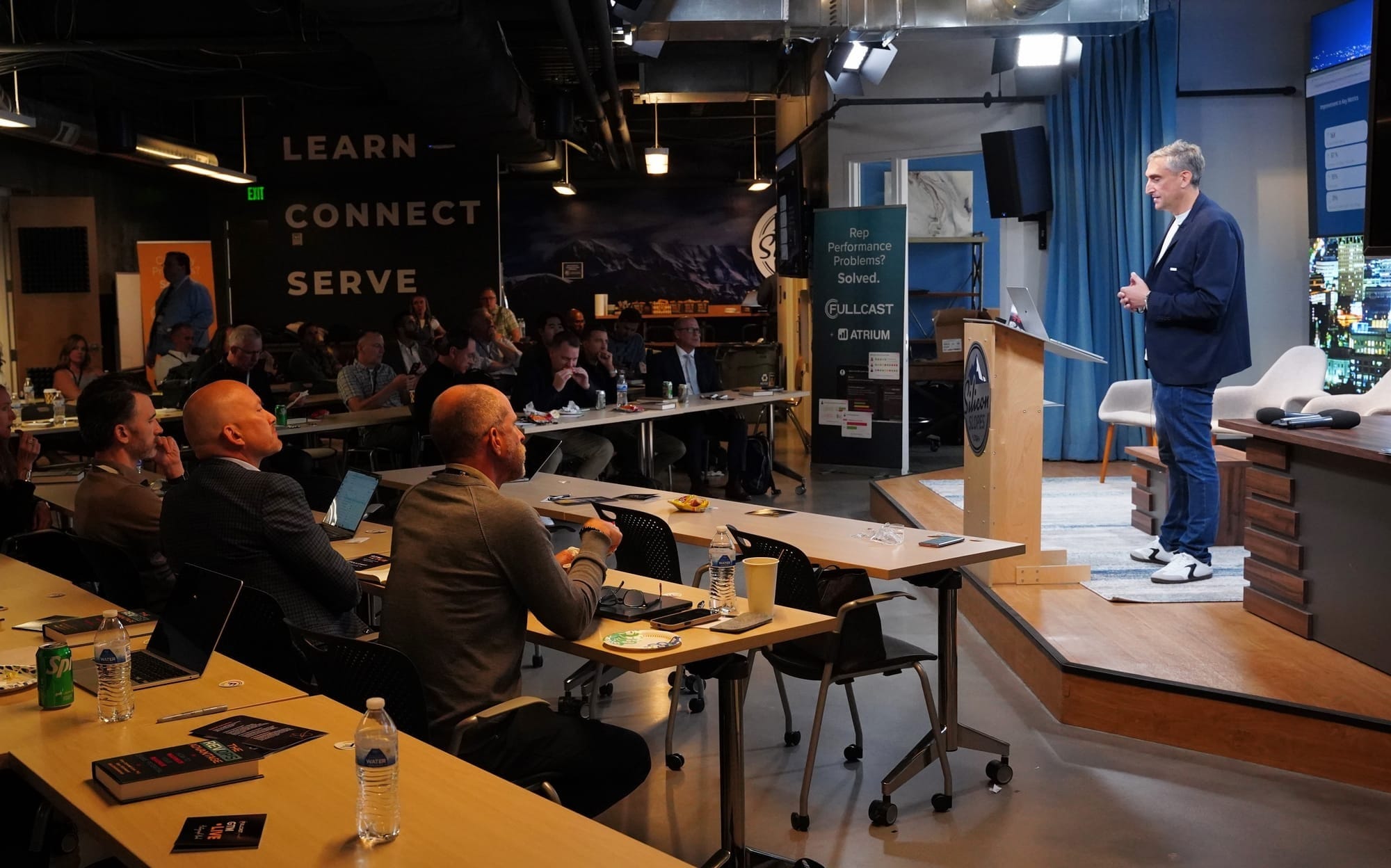
Owning the Boardroom
Westwood also addressed one of the most under-discussed stress points for CEOs: managing the board.
“Board meetings can get hijacked by a single member if you let them,” he said. His solution: proactively isolate issues before meetings. For example, a board member who loved to dig deep into financials was directed to meet with the CFO a week before every board session. “When it came time for the board meeting, it was my agenda,” said Westwood.
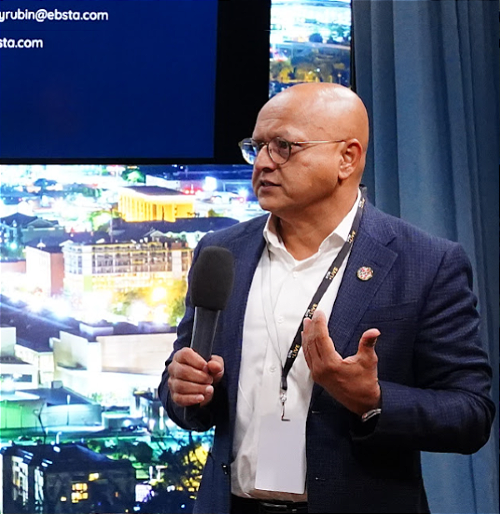
He emphasized that CEOs must never defer management decisions to the board. Governance, audit, compensation, M&A, and charter changes require board input. But hiring, leadership calls, and operational strategy remain the CEO’s job. “You have to get clear about what’s your responsibility and what’s theirs,” he said. By clarifying roles, Westwood said board meetings now run efficiently, freeing him to focus on strategic growth — a small change with a big payoff.
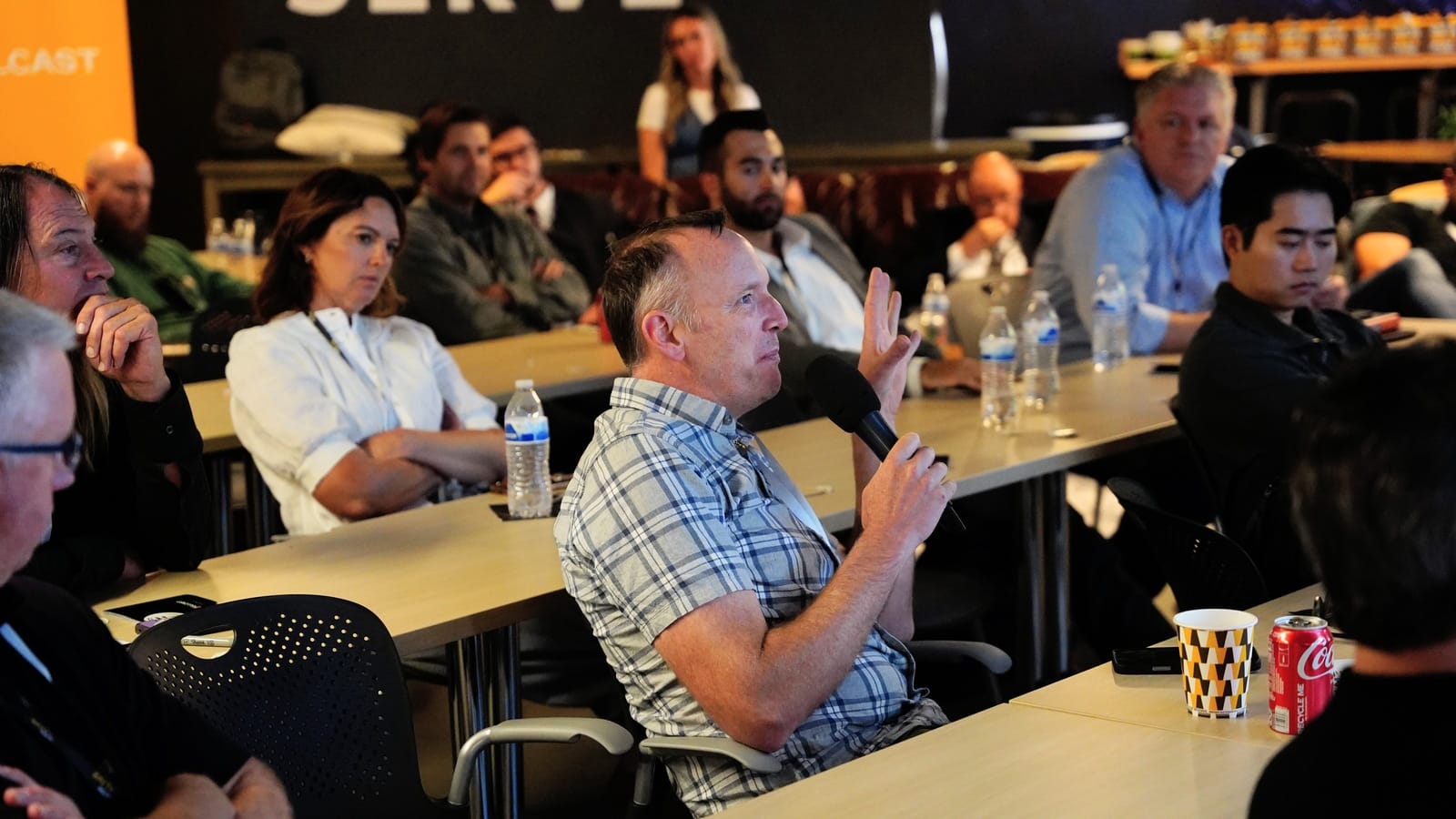
Vigilance Above All
If there’s one responsibility Westwood puts above all others, it’s vigilance over who you bring into the business — whether that’s board members or acquisition partners.
He shared a story about pursuing acquisitions in Australia. On paper, one company looked like a perfect fit. But its CEO boasted about dodging taxes by manipulating travel days. “I knew within five minutes I’d never work with this guy,” Westwood said. Instead, he went with a less obvious target because he trusted that CEO’s integrity and energy.
“The CEOs drive the outcome,” Westwood stressed. “If they’re excited, their teams follow. If they’re resentful or disengaged, the deal will fail no matter what.”

M&A Wisdom from the Room
While Westwood focused on trust and vigilance, other CEOs in the room reinforced similar lessons — many learned the hard way.
Brandon Fugal, Chairman of Colliers International, reflected candidly on the challenges of mergers and acquisitions, noting that even seasoned leaders encounter setbacks. “Some deals didn’t go as planned, often because of misaligned incentives,” he said. His experience taught him the importance of aligning executive interests and reviewing every detail personally. “When your team has meaningful equity and skin in the game, they’re far more invested in the outcome,” he noted — a lesson he encourages other CEOs to take to heart.
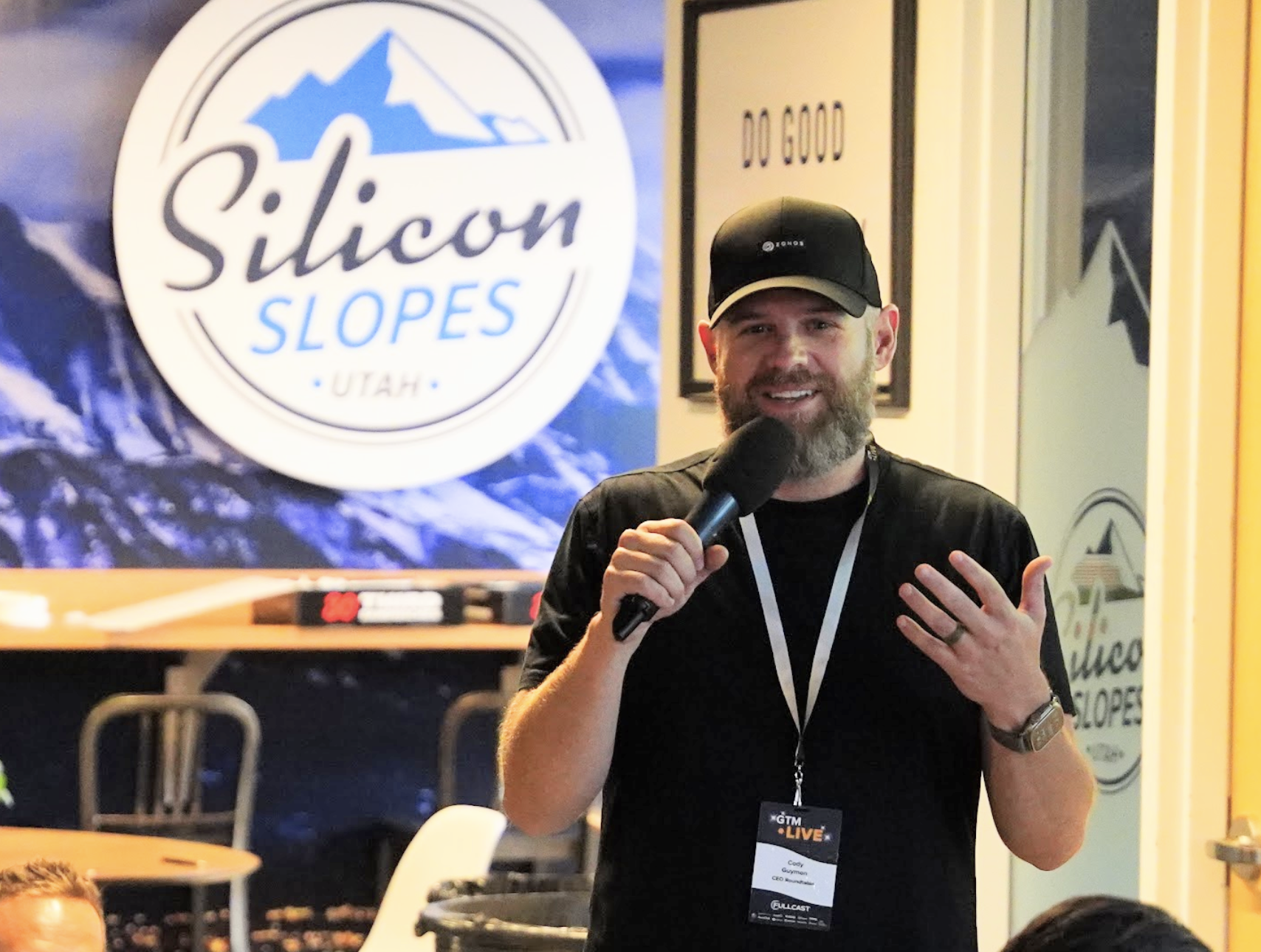
Another CEO with 20+ M&A deals pointed to CEO alignment as the make-or-break factor. “Too often, CEOs announce the deal and leave employees to fight it out. That’s when you get ‘battle hell,’” he said. “The best deals happen when CEOs agree on strengths, share a clear plan, and model cooperation from the top.”
A third CEO emphasized culture integration. Celebrations and slogans aren’t enough, he said: “You’ve got to deliberately merge the best parts of each culture and shed the worst. Otherwise, the two companies never truly become one.”
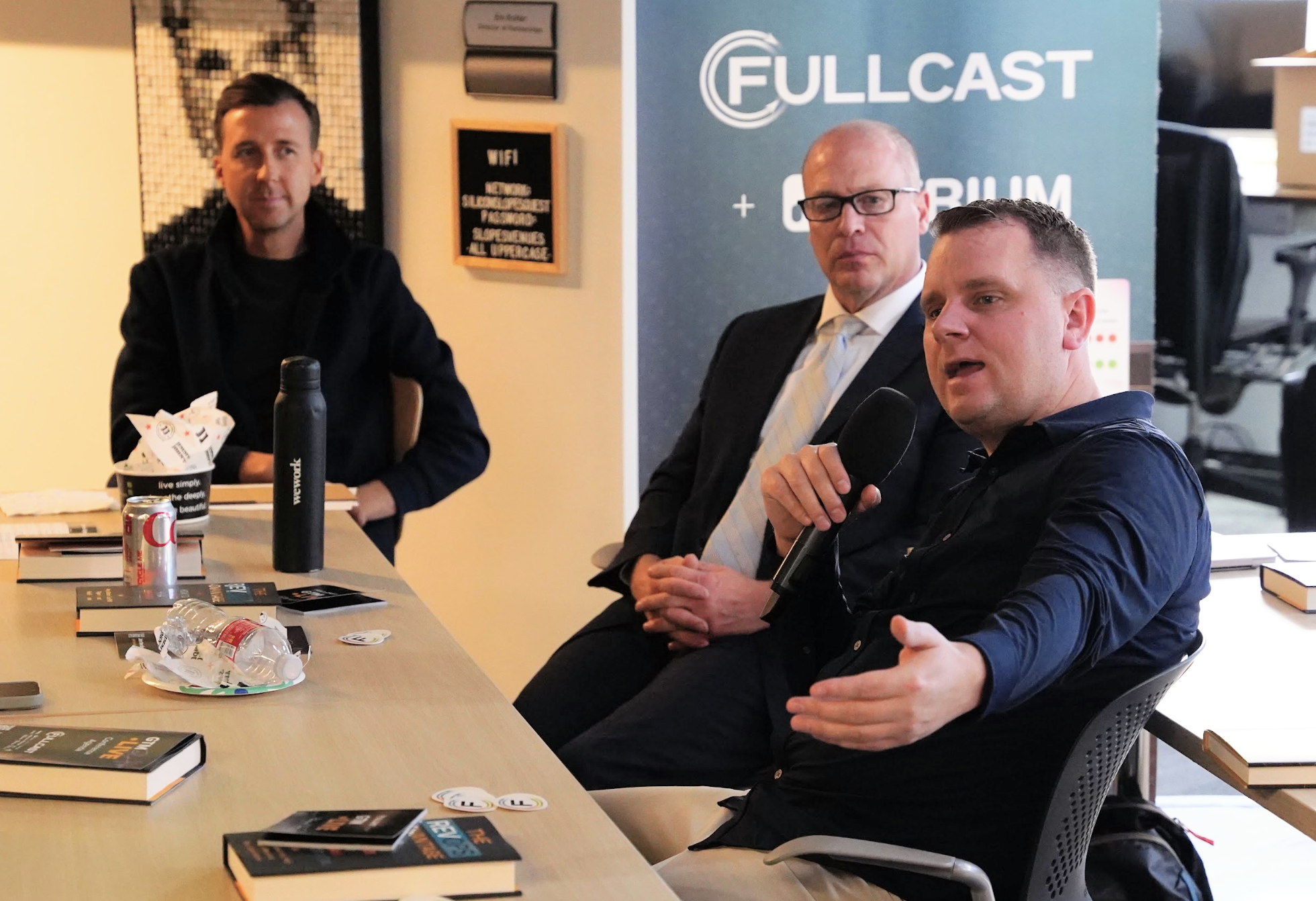
Together, these perspectives reinforce a central truth: M&A isn’t just about capital and strategy. It’s a human equation — about integrity, alignment, and culture — and CEOs who focus on these elements dramatically improve their chances of success.
At GTM Live, Ryan Westwood reminded his peers that sustainable leadership comes down to trust — in your people, in your partners, and in yourself. From equity generosity to M&A vigilance, his message was clear: CEOs who share the economics and surround themselves with integrity-driven partners don’t just survive the grind. They thrive in it.
To learn more about upcoming Silicon Slopes events, click here.

